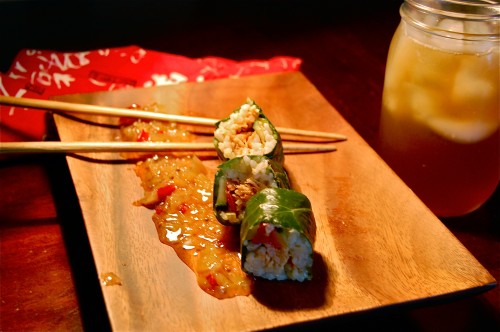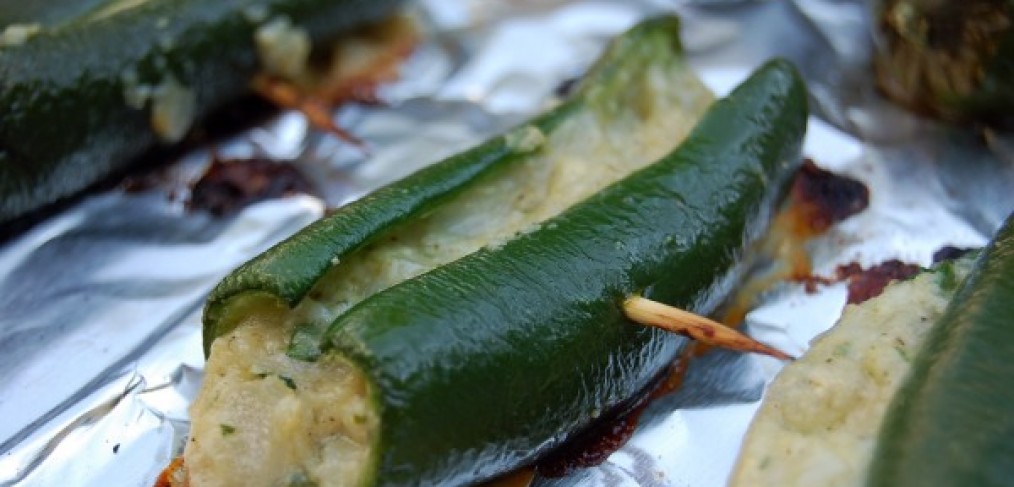Collard leaves behaving like nori? I was pleasantly surprised!
Growing up in the South I’ve become fond of a few standard staples, such as: tomatoes n’ cucumbers swimming in vinegary pools of pleasantries, banana puddin’ in my wife’s belly button, and reclaiming Darwinian fusions in food. So I’ll embrace my heritage in a way that will make most neighbors cringe: sushi!
This dish comes from an idea that I’ve held onto for some time: “why not combine vinegar-based Carolina barbecue with rice in a sushi delivery system?” My food muse gave an agreeable smile through her vodka-Kool-Aid-‘stache, whereas my wife was repulsed by the idea. With the wife and kids away house-sitting for the in-laws this week, I’ve lived what she’s termed a “semi-bachelor week.” She’s right, I’ve done all those things I don’t get to do: blast classic rawk, leave my socks on the couch, revisit my forsaken porn stash (no longer shall I eighty-six the pics of sixty-nine), play Madden, and watch Tosh.0. I ran with the opportunity to create these with immunity. And guess what? Truth is, I’m miserable without her—talking to an invisible muse makes a man lonely—and I can’t wait to recreate these high-maintenance morsels when she returns.




